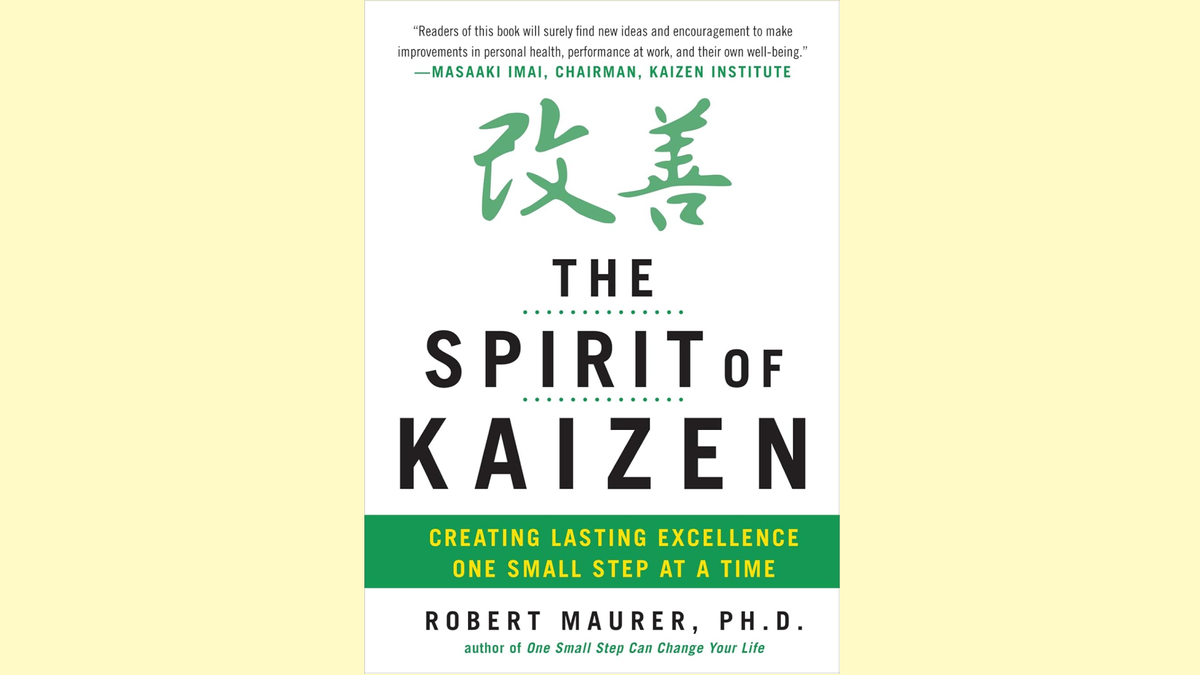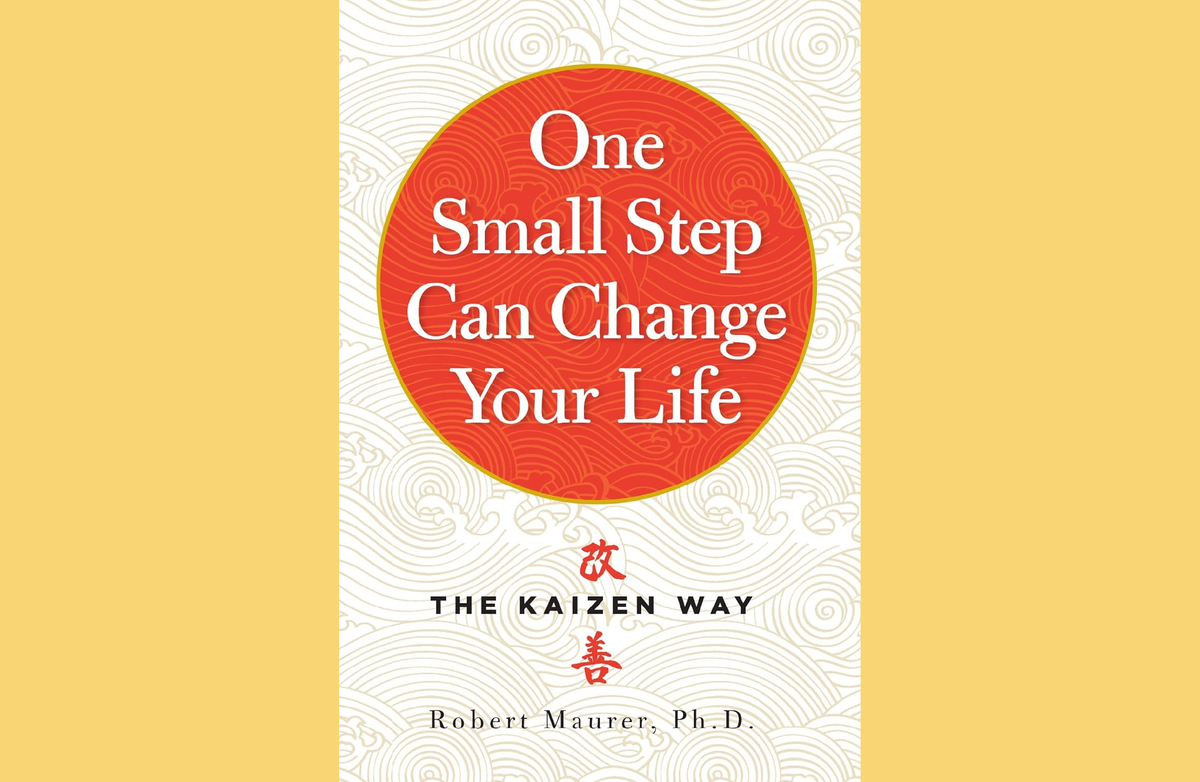Ultimate Kaizen Guide: Small Steps To Provocative Life Change
Discover the transformative power of Kaizen in this Ultimate Guide to Small Steps for Provocative Life Change.

Kaizen offers a different approach—a path to life-changing growth through small, consistent actions in a world that celebrates giant leaps and quick wins. Robert Maurer’s books, “One Small Step Can Change Your Life: The Kaizen Way” and “The Spirit of Kaizen: Creating Lasting Excellence One Small Step at a Time,” explore how we can transform ourselves and our work by starting with small, manageable steps. It’s a philosophy that has profoundly impacted my life, helping me tackle goals in a way that feels natural, sustainable, and, ultimately, provocative in its effect.
Here’s how I applied Kaizen principles to spark change in my life and work, one step at a time.
1. Starting with Just One Word
When I feel stuck, the hardest part is often just getting started. The blank page can be intimidating whether I’m working on a strategy, journaling, or brainstorming. So, I begin with one simple, small step: writing just one word. It may seem insignificant, but that single word often acts as a key that unlocks the rest of my thoughts. Maurer calls this “sidestepping the brain’s resistance”—small steps that gently nudge us out of inertia without triggering stress.
“Small steps circumvent the brain’s built-in resistance to new behaviors,” Maurer writes. “By taking a tiny step, we sidestep the fight-or-flight response and open ourselves up to creativity and growth.”
This Kaizen-inspired trick has been a game-changer for me. By starting with a single word, I can ease myself into flow and let ideas emerge naturally. It’s a reminder that sometimes it takes a single word to get going when facing an intimidating task.

2. Building a Mindset of Continuous Improvement
Kaizen isn’t about one-time changes; it’s a mindset of daily progress. Each day, I strive to improve just a bit, to be a better version of myself than I was yesterday. This isn’t about radical overhauls but minor, intentional adjustments that build up over time. For me, that means dedicating a few minutes each morning to reading and each night to reflecting on what I accomplished and what I can tweak for tomorrow.
Maurer emphasizes, “Great change can start with the smallest of steps. By focusing on small improvements, we can reprogram ourselves for resilience and adaptability.” These daily reflections keep me motivated and grounded, making growth feel accessible. Kaizen has taught me that even minor efforts matter, creating an upward trajectory that fuels long-term success.
“Kaizen is about getting a little better each day,” Maurer says. “It’s not about radical change, but rather the daily commitment to improve.”
3. Practical Techniques for Change
I’ve learned that distractions are the biggest obstacles to meaningful productivity. Notifications, emails, and endless alerts derailed my focus, so I implemented a simple Kaizen technique: Do Not Disturb mode during focused work times. This minor adjustment might seem trivial, but Maurer’s philosophy is clear: “It’s the small steps that reprogram our brain for success, allowing us to focus without triggering stress.”
I’m less tempted to check for notifications when my devices are silent. Finding silence reminds me to stay on task whenever I reach for my phone. This seemingly minor step has made an incredible difference, helping me reclaim my focus and immerse myself fully in my work.
“The brain is wired to resist drastic change,” Maurer explains. “But by making small adjustments, we engage our creative mind and overcome the fear of change.”

4. Applying Kaizen in Teams and Organizations
In team settings, tackling significant changes can feel overwhelming, so I approach Kaizen with a simple question: “What’s one small thing we can improve today?” Instead of aiming for massive overhauls, we focus on small wins, often starting with quick fixes. This approach builds momentum and morale within the team, fostering a culture of continuous improvement without the stress of huge initiatives.
“Kaizen is the art of making big changes by taking small steps,” says Maurer. “When small changes accumulate, they form the basis of lasting transformation.”
One quick win often leads to another, creating a rhythm of growth that everyone can feel part of. By applying Kaizen in teams, I’ve seen how even minor improvements can add up, transforming morale and productivity.
5. Resilience Through Small Steps
Resilience isn’t built in a day or requires tackling monumental challenges simultaneously. Kaizen has taught me that resilience can be built gradually by starting with manageable steps. When I run, for example, I set a simple goal: get outside and start moving, no matter the distance. When writing, I begin with a single sentence. These small actions build my resilience, creating a foundation I can rely on when more considerable challenges arise.
Maurer advises, “Starting small is the key to resilience. The more we achieve through small steps, the more resilient we become to handle bigger tasks.” It’s not about taking on everything at once; it’s about building confidence, step by step, so we’re ready for whatever comes next.
“Resilience is about taking small steps in the face of adversity,” Maurer explains. “It’s not about jumping in all at once, but about building up slowly over time.”
6. Reducing Waste for Productivity Gains
Kaizen doesn’t just apply to our habits; it can also transform our environment. I created an environment that promotes focus and efficiency by clearing my workspace of unnecessary items and distractions. I keep my setup minimal: just my Mac, iPad, and iPhone. Even my devices are decluttered, with only essential apps on my home screens and social media tucked away. This minimalistic approach is rooted in Kaizen’s principle of reducing waste to maximize productivity.
“Waste is anything that distracts us from our goals,” Maurer says. “Removing these distractions allows us to stay focused on what truly matters.”
This uncluttered space has allowed me to work calmly and effectively. Kaizen taught me that productivity isn’t just about time management; it’s also about creating an environment that supports your goals, one minor adjustment at a time.
Final Thoughts: The Power of Small Steps
Robert Maurer’s books, “One Small Step Can Change Your Life” and “The Spirit of Kaizen” highlight the life-changing power of Kaizen. The philosophy of small, steady steps has reshaped how I approach my goals, showing me that meaningful transformation doesn’t require dramatic leaps; it just requires consistent, small actions.
If you’re feeling stuck or overwhelmed, try Kaizen. Start with one tiny step—a single word on a blank page, a minor tweak to a routine, or a quick improvement in your workspace. These small steps will lead you toward a profound, provocative life change. Over time, they compound, creating momentum that carries you further than you ever thought possible.
Practical Steps to Start Using Kaizen Today
Ready to start your own Kaizen journey? Here are some practical steps to integrate Kaizen into your life:
1. Start Small: When you feel overwhelmed, begin with a tiny action. Write one word, clean one desk corner, or dedicate five minutes to a task.
2. Break Down Goals: Break big goals into micro-steps. For example, if you want to exercise, start with five minutes. Gradual steps lead to significant results over time.
3. Minimize Distractions: Use your devices' Do Not Disturb mode to create uninterrupted work periods and improve focus.
4. Daily Reflection: Set aside time each night to reflect on what went well and what you can improve for tomorrow.
5. Quick Wins with Your Team: Focus on a slight weekly improvement in team settings. This approach creates a rhythm of growth and boosts team morale.
6. Declutter Your Workspace: Remove unnecessary items from your desk and devices to create a space that promotes focus and minimizes distractions.
Kaizen teaches us that significant results don’t require substantial actions; they need consistent, small steps that build on one another. Embrace these small steps, and watch how they lead to profound change, transforming your life one step at a time.



